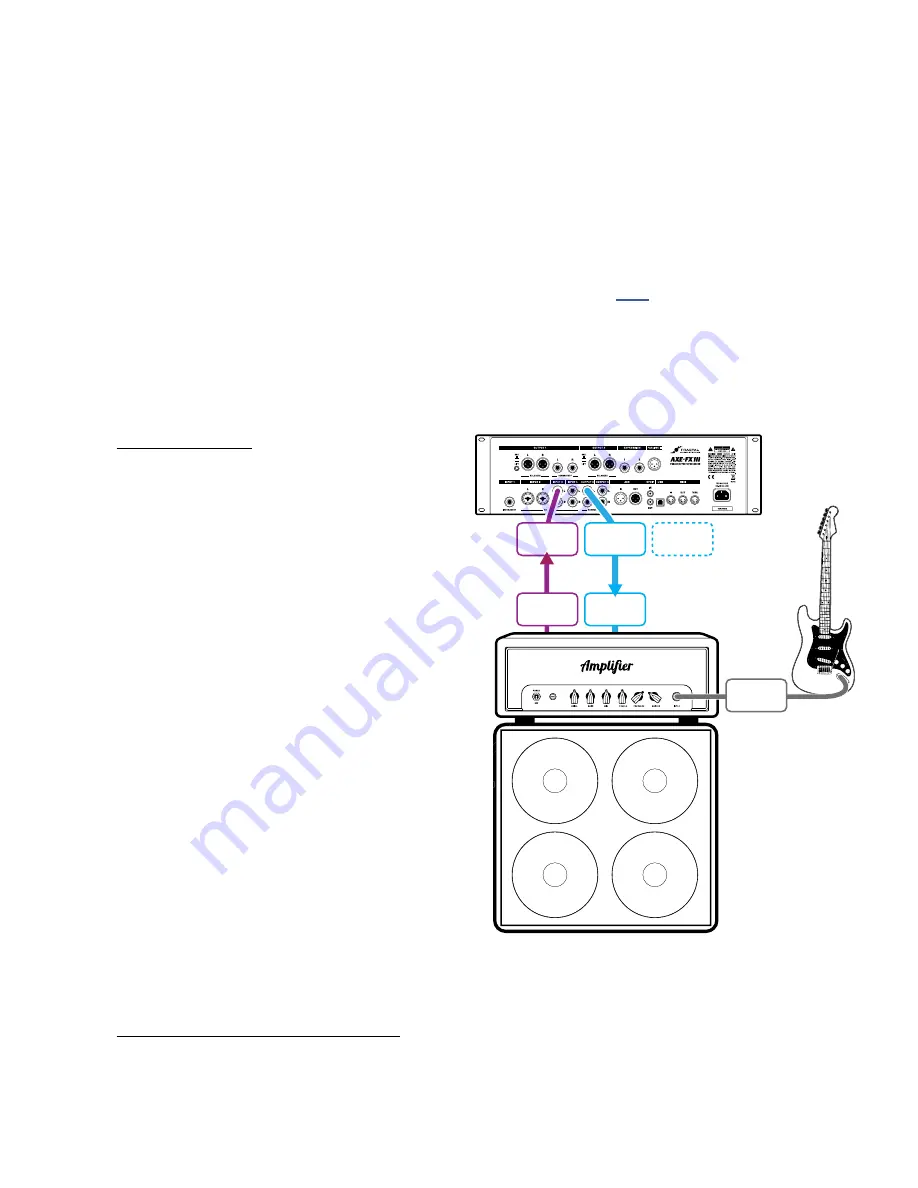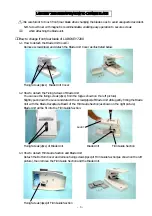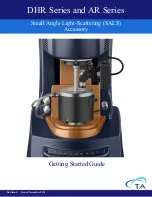
29
4 SETTING UP
FX PROCESSOR ONLY (“POST”)
Global Settings: check I/O Mono/Stereo settings, see “Tip” Below
Presets: Custom
Although it was designed for complete rig replacement, the Axe-Fx III can also be put to superb use as a
standalone FX processor, providing access to our industry leading effects for those who are not ready to make the
switch to modeling.
This setup uses only three of the four cables used in the Four-Cable Method (
) for operation in an amp’s
FX loop, providing post- but no pre-effects. Output 3 and 4 are designed for unity gain applications—which may
or may not be important in this case depending on your amp. Here we’ll use Output 3 and pair it with Input 3 for
simplicity’s sake.
You will need to create custom presets without Amp or Cab blocks, containing only those effects that sound good
to you after preamp distortion: typically chorus, EQs, delays, reverbs, certain types of pitch shift, etc.
AMP
SPEAKER
CABINET
INPUT
3L
FX
SEND
FX
RETURN
Amplifier
Model 50
OUTPUT
3L
OUTPUT
3R
Connect to FX RTN
of a second amp for
optional stereo.
INSTR
IN
CONNECTIONS
This setup requires custom presets
with no Amp or Cab blocks.
Connect your guitar to your amp’s
instrument input as usual.
Connect the FX Send of your amp
to Input 3 L. Input levels can be
adjusted in SETUP : I/O : Input.
In SETUP: I/O: Audio, set Input
3 Mode to “LEFT ONLY”.
Connect Output 3 L to the FX Return of your
amp. A Humbuster cable is recommended.
Set the front panel
OUT 3
knob as desired
for appropriate volume levels. If unity gain
is required, set the knob fully clockwise.
To extend this configuration for optional
stereo, you would typically connect Output
3 R to the FX Return of a second amplifier,
bypassing that unit’s preamp altogether.
Other types of stereo setup are of course
possible, including using two totally
different amps each connected on Left and
Right sides of one I/O pair, or I/O 3 for one
amp and I/O 4 for another. There are no
limits except your imagination.
TIP: OPTIMIZE FOR LOW NOISE
The optional Boost/Pad functions on Outputs 3 and 4 are designed to run the D/A converters at boosted levels,
padding their outputs for even lower noise. To find the right setting, adjust either of these settings as high as
possible without clipping the outputs, as indicated by a red LED on the front panel meters. You’ll actually hear the
noise floor drop as you increase boost/pad. Find these options on the Audio page of the I/O menu under SETUP.
















































